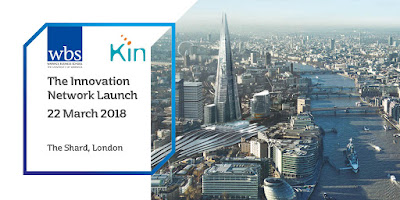-->
The last decade has seen innovations in products and services that were unimaginable 20 years ago. Hotels didn’t see AirBnB coming, Tesla reinvented auto manufacture, Netflix & Amazon now dominate entertainment. Blockchain providers are likely to disintermediate almost every professional service. Large organisations need to be smarter & more agile in the way they innovate and leadership needs to adapt to a world of 'adhocracy'.
To register
A non-profit practitioners’ network of large, predominantly blue-chip organisations. The network is kept deliberately small in order to foster trust and familiarity and the ability to ‘get behind’ what makes organizational learning and Innovation techniques effective. Having only one organisation from each industry sector, and no consultants or vendors, provides a unique atmosphere of trust and diversity of thinking.
Business value is driven through the development of new insights, real-world research and the sharing of proven practice and tools. Examples of the themes include:
-->
Invitation
to the launch of ‘The Innovation Network’
When: 5:00pm – 7:30pm, Thursday 22nd March 2018
Where: Warwick
Business School's new conference facility at the Shard, 32 London Bridge Street, London SE1
9SG. 2 mins from London Bridge Station.
You are cordially invited to an evening
that will stimulate and challenge your thinking about innovation in your
organisation.
Highlights
- A drinks reception and Innovation Showcase, with contributions from KIN Member organisations and many others
- Tony Corkett, Head of Strategic
partnerships at Google's Deepmind. Deepmind received a lot of publicity after beating the world champion at Go. Tony will show how Google’s remarkable
AI and machine learning capability are transforming research into healthcare
and many other real-world problems.
- The official launch of ‘The Innovation Network’ (formerly Warwick Business School’s Knowledge and Innovation Network)
Who should participate
Leaders
from the following functions
|
Organisations from the following
industries are particularly welcome
(KIN
has a policy of only one member from each sector to maximise openness and
trust)
|
- Innovation and R&D
|
-Finance
|
-Learning and Development
|
-Pharmaceuticals
|
-Industry/academic collaboration
|
-FMCG / Retail
|
-Operations
|
-Automototive
|
-Strategic change
|
-Engineering/construction
|
-Communications
|
-Software
|
-Policy development
|
-Healthcare
|
-Technology
|
-Energy
-Media/News |
To register
Participation is free, but by invitation only. You and your colleagues are welcome to attend if you have an interest in the Innovation Network. Please see overleaf for network aims, ethos and membership criteria.
Please contact Jane Mallin at kin@wbs.ac.uk to register, or for more information.
Please contact Jane Mallin at kin@wbs.ac.uk to register, or for more information.
KIN aims and ethos
- Organizational learning and Learning from Practice
- Innovation practice
- Knowledge sharing and knowledge retention
- Virtual teamworking
- ‘Enabling’ Technologies (augmented and social media, data analytics, AI etc)
- Communities of Practice
- Social Network Analysis
The Network provides:
- Dedicated Facilitators, working with Member organisations, connecting wants and offers and ensuring connections are developed and insights shared.
- An extensive calendar of Member-only events. This includes unlimited organisation-wide participation in Roundtables, Masterclasses and Webinars; typically one per month. Two free places at our major quarterly Workshops, which include networking dinners and accommodation.
- A content-rich and secure online MemberSpace and a private & secure LinkedIn forum.
- The KIN bi-annual network analysis is our systematic way of identifying and measuring high performing elements within Member organizations. This allows KIN to bridge the competency gap and inform our programme. It also allows member organisations to set measurable innovation and learning improvement targets.
- Access to academic and applied research from the IKON Research Group at Warwick Business School (IKON is the founding body for KIN).
-->


